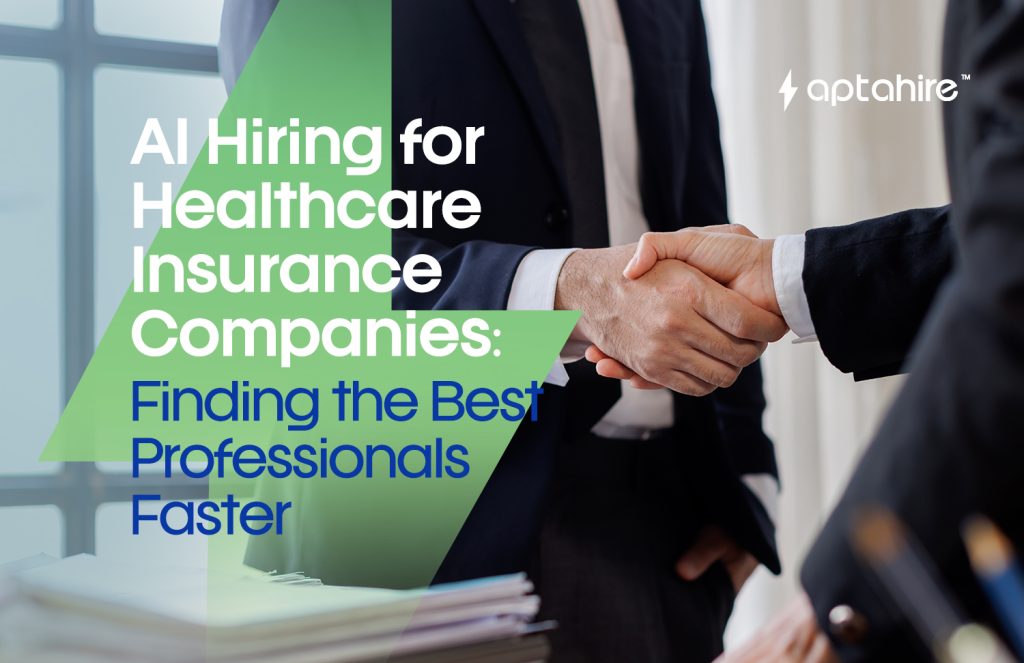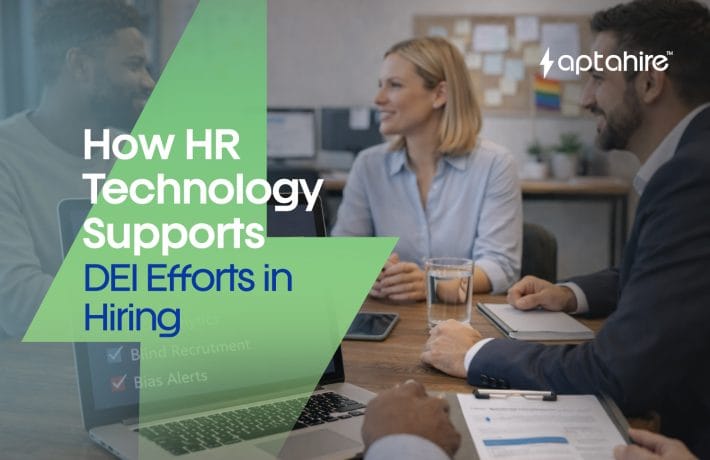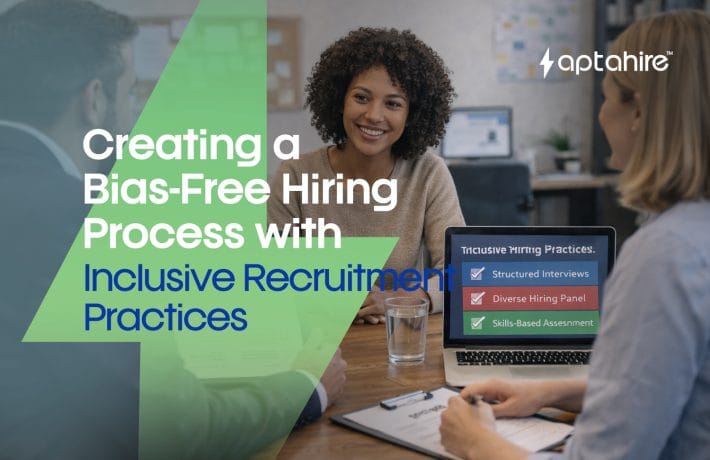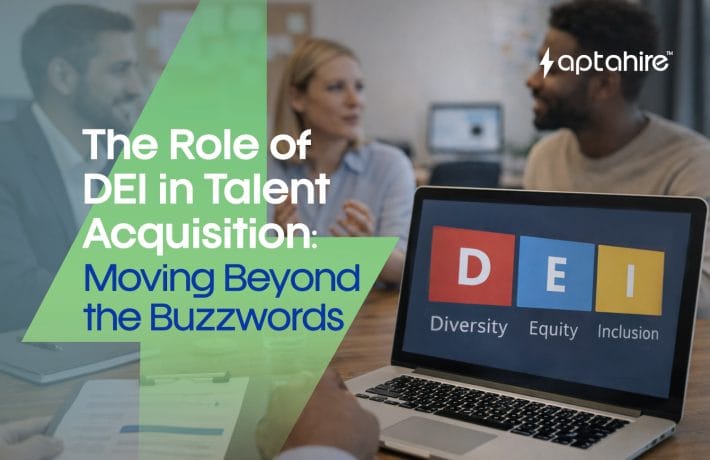AI Hiring for Healthcare Insurance Companies: Finding the Best Professionals Faster

Let’s face it, healthcare insurance isn’t exactly the easiest industry to recruit for. You’re not just looking for smart people. You need professionals who are precise, analytical, regulatory-savvy, and empathetic, all while dealing with mountains of data and customer claims. And in today’s talent market? That’s a unicorn hunt.
But here’s the twist: AI is changing the hiring game, and healthcare insurance companies are beginning to reap the benefits.
Let’s walk through how AI hiring is helping healthcare insurers hire better, faster, and smarter, with zero fluff and full real-world impact.
The Real Hiring Challenge in Health Insurance
Think about the roles healthcare insurers typically hire for:
- Claims analysts
- Underwriters
- Policy processors
- Customer service specialists
- Regulatory compliance experts
- Data scientists for risk modeling
It’s a wide mix, from deeply technical to deeply human. And with the sheer volume of applicants, traditional hiring methods can quickly become a logistical nightmare. HR teams are bogged down reviewing resumes, scheduling interviews, and juggling background checks, often leading to delayed hiring or missed top talent.
That’s where AI hiring solutions step in; not to replace recruiters, but to give them a serious productivity upgrade.
How AI Actually Works in Healthcare Insurance Hiring
Let’s break this down like we’re having coffee:
1. AI Does the Resume Scanning, But Smarter
Instead of keyword-matching like old-school filters, AI hiring platforms can analyze the context of a resume.
Let’s say someone has worked on “risk modeling using SAS and Excel” in a bank. The AI recognizes that this candidate could be a good fit for claims analytics or underwriting in an insurance setting, even if they’ve never worked in insurance before.
No more missing out on great cross-functional talent!
2. Predictive Matching = Hiring with Foresight
Imagine if you had a system that tells you,
“Hey, based on 3 years of your hiring data, candidates with X background and Y soft skills are 2.3x more likely to succeed in your claims team.”
That’s what predictive analytics does. AI tools use past data, like job success rates, tenure, and interview performance, to recommend the best-fit profiles.
You’re not just hiring fast, you’re hiring smart.
3. Bias? Let’s Leave That at the Door
Unconscious bias is real. Even the best recruiters can be swayed by names, universities, accents, or gaps in resumes. AI can mask identifiers like gender, age, or ethnicity, and just focus on skills, experience, and qualifications.
This helps bring diverse talent into the conversation, something healthcare insurance desperately needs, especially to reflect its broad customer base.
4. Interviewing Gets a Makeover
Picture this: A candidate applies. They get an automated invite to a video interview. They log in, answer a few role-specific questions, and submit it.
Meanwhile, AI analyzes:
- How clear and confident they are
- Their ability to explain domain-specific topics (e.g., insurance policies or claims workflows)
- Even subtle cues like emotional intelligence or problem-solving style
All this before a human even steps in. Now, recruiters get a refined shortlist and can spend more time connecting deeply with top-tier candidates.
5. It’s a Blessing for Compliance and Documentation
In healthcare insurance, you’re not just hiring, you’re auditing every step. There are so many regulations to follow (think HIPAA, IRDAI norms, or company-specific compliance requirements).
AI hiring platforms can automatically:
- Verify credentials and licenses
- Flag missing documents
- Store everything in an audit-ready format
Less stress. Fewer errors. Happy compliance officers.
What Kind of Results Are Companies Seeing?
This isn’t sci-fi. It’s already happening.
Shell & BP (in energy but with similar hiring demands)
They cut down time-to-hire by up to 40% using AI assessments and video analysis.
Mid-size health insurer in India (via Aptahire)
- Reduced screening time by 60%
- Improved candidate experience (automated updates and feedback)
- Saw better alignment between job expectations and actual performance
Translation? AI helps you find better people, faster, and gives your team space to focus on what matters: connecting, assessing fit, and building culture.
So, Why Should You Care as an HR or Hiring Manager?
Let’s say you’re leading recruitment at a healthcare insurer. You’re juggling 20 open roles, compliance headaches, a mountain of resumes, and C-suite pressure to “hire faster.”
Here’s what AI hiring offers you on a silver platter:
| Problem | AI Solution |
| Too many irrelevant applications | AI filters based on skills and context |
| Long hiring cycles | Automation at every step, resume parsing to scheduling |
| High attrition | Predictive hiring models identify long-term fits |
| Bias in hiring | Masked evaluations promote equity |
| Manual compliance | Automated tracking and documentation |
It’s like hiring with a superpower.
But Hold On, It’s Not All Sunshine
Let’s be real. AI isn’t perfect.
Garbage In, Garbage Out
If your historical hiring data is biased, your AI will learn those same biases. That’s why companies must regularly audit and retrain their models with inclusive datasets.
Transparency is Key
Candidates should know how their applications are being evaluated. A fair and ethical AI hiring process needs explainability, not just algorithms working in the dark.
Human Touch Still Matters
AI doesn’t replace judgment. It’s a tool, not a decision-maker. The final call? That’s still your recruiter’s job. Human insight and empathy can’t be automated.
Final Take: AI + Humans = The Future of Hiring in Health Insurance
Hiring for healthcare insurance companies is complex. You’re navigating regulation-heavy roles, massive data volumes, and a tight labor market.
AI hiring doesn’t solve all your problems, but it solves a lot of them.
- You get better-fit professionals
- You speed up hiring timelines
- You reduce bias
- You streamline compliance
- And you give candidates a much better experience
So, if your hiring feels like a never-ending queue at the claims counter, maybe it’s time to let AI triage the process.
FAQs
1. What roles in healthcare insurance can AI help hire for?
AI can assist in hiring for a wide range of roles such as claims analysts, underwriters, actuarial professionals, customer support representatives, compliance officers, and data analysts, essentially any position that requires skill-based evaluation and speed.
2. How does AI improve the quality of hires in healthcare insurance companies?
AI analyzes a candidate’s experience, skillset, and behavioral traits using data-driven algorithms. It compares these traits with top-performing employees, enabling recruiters to predict long-term performance and cultural fit with greater accuracy.
3. Is AI hiring only suitable for large enterprises?
Not at all. Many AI hiring platforms are scalable and cost-effective, making them suitable for mid-sized and even small healthcare insurance firms. These platforms reduce manual workload, helping lean HR teams become more efficient.
4. Can AI help ensure compliance with healthcare regulations during hiring?
Yes. AI platforms can verify credentials, automate background checks, and flag missing documentation. They also maintain organized, auditable records, which are crucial for compliance with regulations like HIPAA, IRDAI guidelines, or other local laws.
5. Does AI hiring eliminate bias completely?
AI can significantly reduce unconscious bias by anonymizing resumes and focusing solely on qualifications and skills. However, bias can still exist if the AI is trained on biased historical data, which is why ethical use and regular audits are essential.
6. Will candidates know they’re being evaluated by AI?
Yes, and they should. Reputable AI hiring platforms prioritize transparency and inform candidates about how their data will be used, how decisions are made, and give them the option to request human review where necessary.
7. How does AI evaluate soft skills during the hiring process?
AI evaluates soft skills through video interviews, voice analysis, facial expressions, and behavioral assessments. It looks at things like communication clarity, empathy, collaboration style, and leadership potential, all relevant in customer-facing roles.
8. What if the AI shortlists the wrong candidates?
AI tools are not meant to make final decisions. They act as assistants, providing a shortlist based on logic and data. Human recruiters always have the final say and can override AI suggestions if needed.
9. Is it hard to integrate AI hiring tools with our current HR systems?
Most modern AI hiring platforms are designed to integrate easily with Applicant Tracking Systems (ATS), HRMS platforms, and onboarding tools. Your vendor or tech partner can help ensure a smooth transition.
10. How quickly can a healthcare insurance company start seeing results with AI hiring?
Companies often start seeing results, like reduced time-to-hire, better candidate matches, and improved recruiter productivity, within 2 to 3 hiring cycles. A pilot rollout for select roles can show quick wins before scaling across departments.



